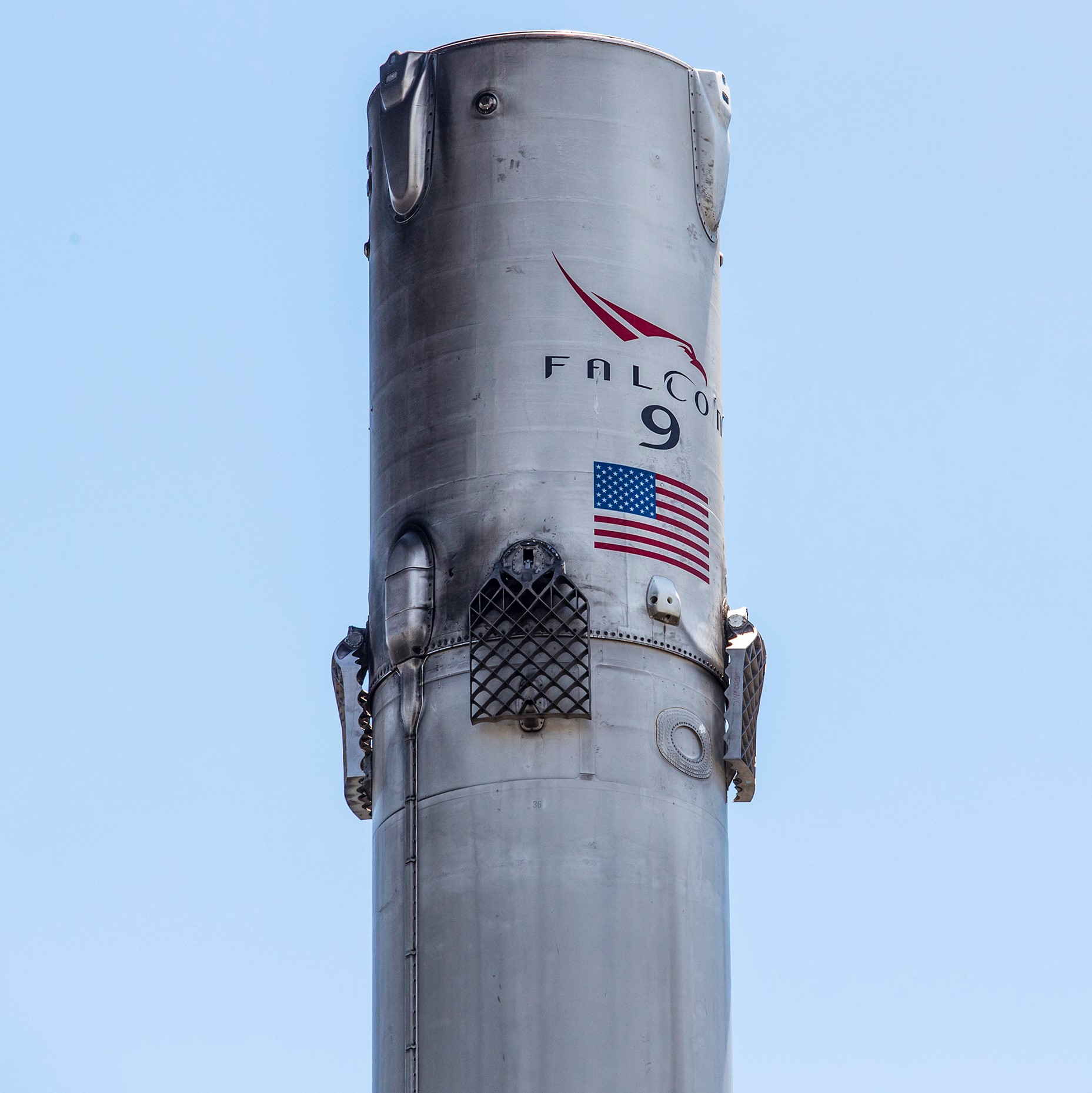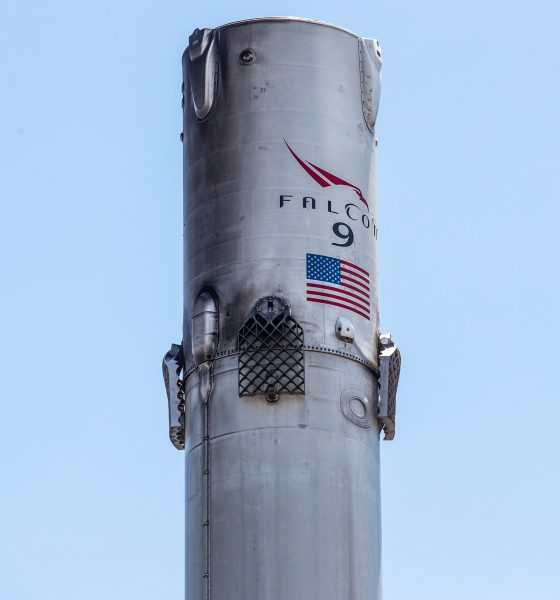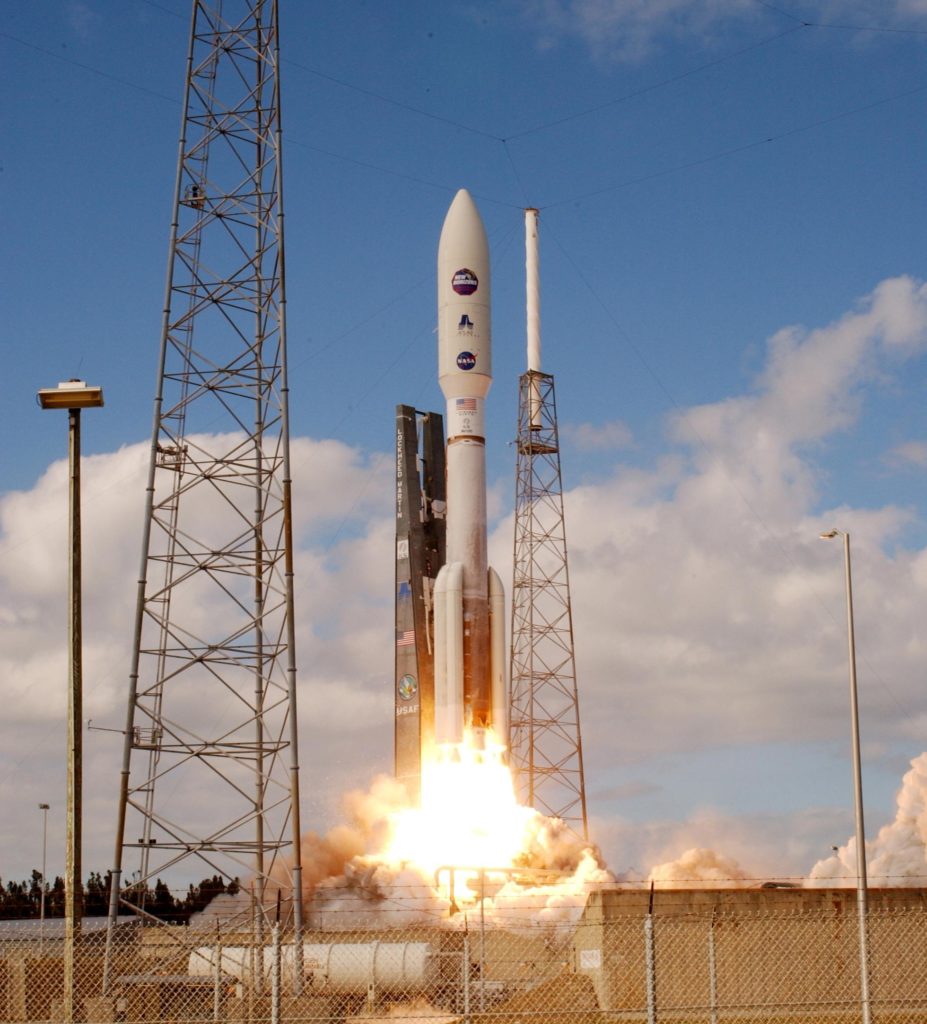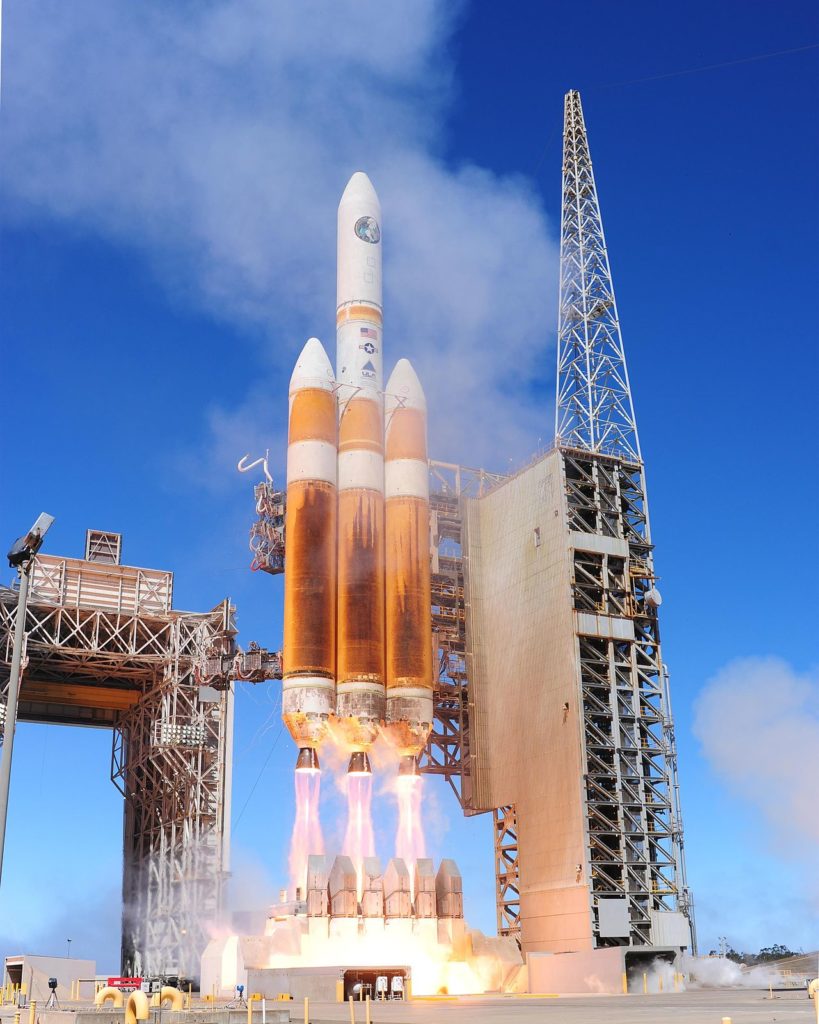

News
Musk calls out SpaceX rival for receiving billion dollar subsidy, ULA head fires back
Following an intriguing SpaceX testimony before Senate committees in Washington D.C., Musk took to Twitter to share some thoughts on the state of the launch marketplace and SpaceX’s place within it. It didn’t take long for him to relate a somewhat common critique of the United Launch Alliance, SpaceX’s only American competition.
Sorry. That is simply not true. There is no "billion dollar subsidy". Amazing that this myth persists.
— Tory Bruno (@torybruno) July 14, 2017
Other orgs shd also develop reusable orbital rockets. If an airplane co had reusable airplanes, buying single use airplanes wd seem crazy. pic.twitter.com/OJotlGmPHt
— Elon Musk (@elonmusk) July 13, 2017
Tory Bruno, President and Chief Executive of ULA, responded with gloves off just a few hours later, deeming the implied existence of such a subsidy nothing more than a “[persistent] myth”. He spent fifteen or so minutes replying to skeptical and inquisitive followers on Twitter, stating that the Wikipedia paragraph on the subject was incorrect. Bruno was steadfast in his response saying that he had publicly testified on the public procurement process before Congress (he did, and he did not defer on the term “subsidy”), and he adamantly refused to back down on his statement that such a subsidy only existed in mythology.
For better or for worse, Bruno is correct to a large extent. In fact, he published a full editorial on the controversial subject in the canonical SpaceNews Magazine. The ELC (EELV (Evolved Expendable Launch Vehicle) Launch Contract) is the source of this controversy, and while not quite a full billion dollars, the FY2016 ELC contract was for $860 million.
SpaceX has admittedly been chronically doubted and mistreated in the realm of government contracting, and ULA has been less than perfectly civil in the past. Simply by existing, SpaceX in effect disrupted what was a American launch industry monopoly held between Boeing and Lockheed Martin. Those two companies merged their space endeavors approximately 11 years ago and have since been the United Launch Alliance. For reasons that do make a bit of sense but are still mildly obtuse, the United States Air Force chose to purchase ULA launch vehicles and the services that make the launch of those vehicles possible separately. The main given reason for this choice, as explored in Bruno’s editorial, is to give the Air Force added flexibility.
As discussed in the 2016 ELC contract itself, another large need for this type of funding lies in the maintenance of a large workforce, and the constant depreciation of both the Atlas and Delta families of launch vehicles. The Delta family, known mainly for the large Delta IV Heavy, is almost never utilized at this point in time, with Atlas being both more cost effective and more reliable. Regardless, due to contracting, ULA is required to maintain both the workforce and facilities necessary to produce and launch Delta vehicles, in spite of having nearly no “business” thanks to Atlas V. Maintaining a workforce and set of facilities that is in part or whole redundant is not efficient or cost-effective, but it is contractually required. So, while the ELC contract Musk deemed a nearly pointless subsidy does have some major flaws, inefficiencies, and illogical aspects, it is not technically correct to label it a subsidy.
- Operated by the same company responsible for the F-35, Atlas 5 is a highly reliable and equally expensive rocket. (ULA)
- Delta IV Heavy, the only current American heavy lift launch vehicle in service. Once operational, Falcon Heavy will be capable of launching nearly double the payload to GTO. (USAF/ULA, 2013)
Without the actual contract information, it is also difficult to know if ULA would still receive this contractual payment in lieu of conducting actual launches. Bruno frames it in such a way that it sounds like the U.S. government modifies the payment size based on the number and type of required launches for a given year. If the multi-year agreement means that launches delayed many months or more can still be swapped out at no additional charge, then this does indeed make a certain amount of sense. The array of discussion on the subject nevertheless fails to explore the consequences of launch provider-side issues, the likes of which ULA and Atlas 5 experienced earlier this year, resulting in some amount of delays.
We do that too, but for free
— Elon Musk (@elonmusk) July 13, 2017
While there can be no doubt that the actual gritty details of the ELC contracts deal explicitly with such possible outcomes, the lack of transparency (be that as a result of publicly inaccessible contract details or highly obtuse and lingo-heavy contract language) ultimately frames ELC contracts and the vehemence with which ULA defends them as a wasteful, overly complex, and unnecessary alternative to simply offering a fixed product with services inherently included, as SpaceX does.

News
Tesla ships out an update for everyone that California caused
“This change only updates the name of certain features and text in your vehicle,” the company wrote in Release Notes for the update, “and does not change the way your features behave.”

Tesla has shipped out an update for its vehicles that was caused specifically by a California lawsuit that threatened the company’s ability to sell cars because of how it named its driver assistance suite.
Tesla shipped out Software Update 2026.2.9 starting last week; we received it already, and it only brings a few minor changes, mostly related to how things are referenced.
“This change only updates the name of certain features and text in your vehicle,” the company wrote in Release Notes for the update, “and does not change the way your features behave.”
The following changes came to Tesla vehicles in the update:
- Navigate on Autopilot has now been renamed to Navigate on Autosteer
- FSD Computer has been renamed to AI Computer
Tesla faced a 30-day sales suspension in California after the state’s Department of Motor Vehicles stated the company had to come into compliance regarding the marketing of its automated driving features.
The agency confirmed on February 18 that it had taken a “corrective action” to resolve the issue. That corrective action was renaming certain parts of its ADAS.
Tesla discontinued its standalone Autopilot offering in January and ramped up the marketing of Full Self-Driving Supervised. Tesla had said on X that the issue with naming “was a ‘consumer protection’ order about the use of the term ‘Autopilot’ in a case where not one single customer came forward to say there’s a problem.”
This was a “consumer protection” order about the use of the term “Autopilot” in a case where not one single customer came forward to say there’s a problem.
Sales in California will continue uninterrupted.
— Tesla North America (@tesla_na) December 17, 2025
It is now compliant with the wishes of the California DMV, and we’re all dealing with it now.
This was the first primary dispute over the terminology of Full Self-Driving, but it has undergone some scrutiny at the federal level, as some government officials have claimed the suite has “deceptive” names. Previous Transportation Secretary Pete Buttigieg was one of those federal-level employees who had an issue with the names “Autopilot” and “Full Self-Driving.”
Tesla sued the California DMV over the ruling last week.
News
Tesla workers push back against Giga Berlin unionization
“IG Metall did not succeed in Giga Berlin‘s works council election earlier today. The union share was reduced from nearly 40% in 2024 to 31% in 2026! This is a clear message by the Giga Berlin team towards an independent co-determination! The list called Giga United, led by the current chairwoman, Michaela Schmitz, received the most votes with more than 40%! Good news for Giga Berlin!”

Tesla workers pushed back against unionization efforts at Gigafactory Berlin, and over the past few years, there has been a dramatic decrease in interest to unionize at the German plant.
Gigafactory Berlin Plant Manager André Thierig announced on Wednesday that IG Metall, the European union group, saw its share reduce from 40 to 31 percent in 2026 as employees eligible to vote on the issue. Instead, the Giga Berlin team, known as Giga United, received the most votes with more than 40 percent.
BREAKING! 🚨
IG Metall did not succeed in Giga Berlin‘s works council election earlier today. The union share was reduced from nearly 40% in 2024 to 31% in 2026!
This is a clear message by theGiga Berlin team towards an independent co-determination!
The list called Giga…
— André Thierig (@AndrThie) March 4, 2026
Thierig gave specific details in a post on X:
“IG Metall did not succeed in Giga Berlin‘s works council election earlier today. The union share was reduced from nearly 40% in 2024 to 31% in 2026! This is a clear message by the Giga Berlin team towards an independent co-determination! The list called Giga United, led by the current chairwoman, Michaela Schmitz, received the most votes with more than 40%! Good news for Giga Berlin!”
There were over 10,700 total employees who were eligible to vote, with 87 percent of them turning out to cast what they wanted. There were three key outcomes: Giga United, IG Metall, and other notable groups, with the most popular being the Polish Initiative.
The 37-seat council remains dominated by non-unionized representatives, preserving Giga Berlin as Germany’s only major auto plant without a collective bargaining agreement.
Thierig and Tesla framed the outcome as employee support for an “independent, flexible, and unbureaucratic” future, enabling acceleration on projects like potential expansions or new models. IG Metall expressed disappointment, accusing management of intimidation tactics and an “unfair” campaign.
The first election of this nature happened back in 2022. In 2024, IG Metall emerged as the largest single faction with 39.4 percent, but non-union lists coalesced for a majority.
But this year was different. There was some extra tension at Giga Berlin this year, as just two weeks ago, an IG Metall rep was accused by Tesla of secretly recording a council meeting. The group countersued for defamation.
Tesla Giga Berlin plant manager faces defamation probe after IG Metall union complaint
This result from the 2026 vote reinforced Tesla’s model of direct employee-management alignment over traditional German union structures, amid ongoing debates about working conditions. IG Metall views it as a setback but continues advocacy. Tesla sees it as validation of its approach in a competitive EV market.
This outcome may influence future labor dynamics at Giga Berlin, including any revival of expansion plans or product lines, which Musk has talked about recently.
News
SpaceX President Gwynne Shotwell details xAI power pledge at White House event
The commitment was announced during an event with United States President Donald Trump.

SpaceX President Gwynne Shotwell stated that xAI will develop 1.2 gigawatts of power at its Memphis-area AI supercomputer site as part of the White House’s new “Ratepayer Protection Pledge.”
The commitment was announced during an event with United States President Donald Trump.
During the White House event, Shotwell stated that xAI’s AI data center near Memphis would include a major energy installation designed to support the facility’s power needs.
“As you know, xAI builds huge supercomputers and data centers and we build them fast. Currently, we’re building one on the Tennessee-Mississippi state line. As part of today’s commitment, we will take extensive additional steps to continue to reduce the costs of electricity for our neighbors…
“xAI will therefore commit to develop 1.2 GW of power as our supercomputer’s primary power source. That will be for every additional data center as well. We will expand what is already the largest global Megapack power installation in the world,” Shotwell said.
She added that the system would provide significant backup power capacity.
“The installation will provide enough backup power to power the city of Memphis, and more than sufficient energy to power the town of Southaven, Mississippi where the data center resides. We will build new substations and invest in electrical infrastructure to provide stability to the area’s grid.”
Shotwell also noted that xAI will be supporting the area’s water supply as well.
“We haven’t talked about it yet, but this is actually quite important. We will build state-of-the-art water recycling plants that will protect approximately 4.7 billion gallons of water from the Memphis aquifer each year. And we will employ thousands of American workers from around the city of Memphis on both sides of the TN-MS border,” she noted.
The Ratepayer Protection Pledge was introduced as part of the federal government’s effort to address concerns about rising electricity costs tied to large AI data centers, as noted in an Insider report. Under the agreement, companies developing major AI infrastructure projects committed to covering their own power generation needs and avoiding additional costs for local ratepayers.










